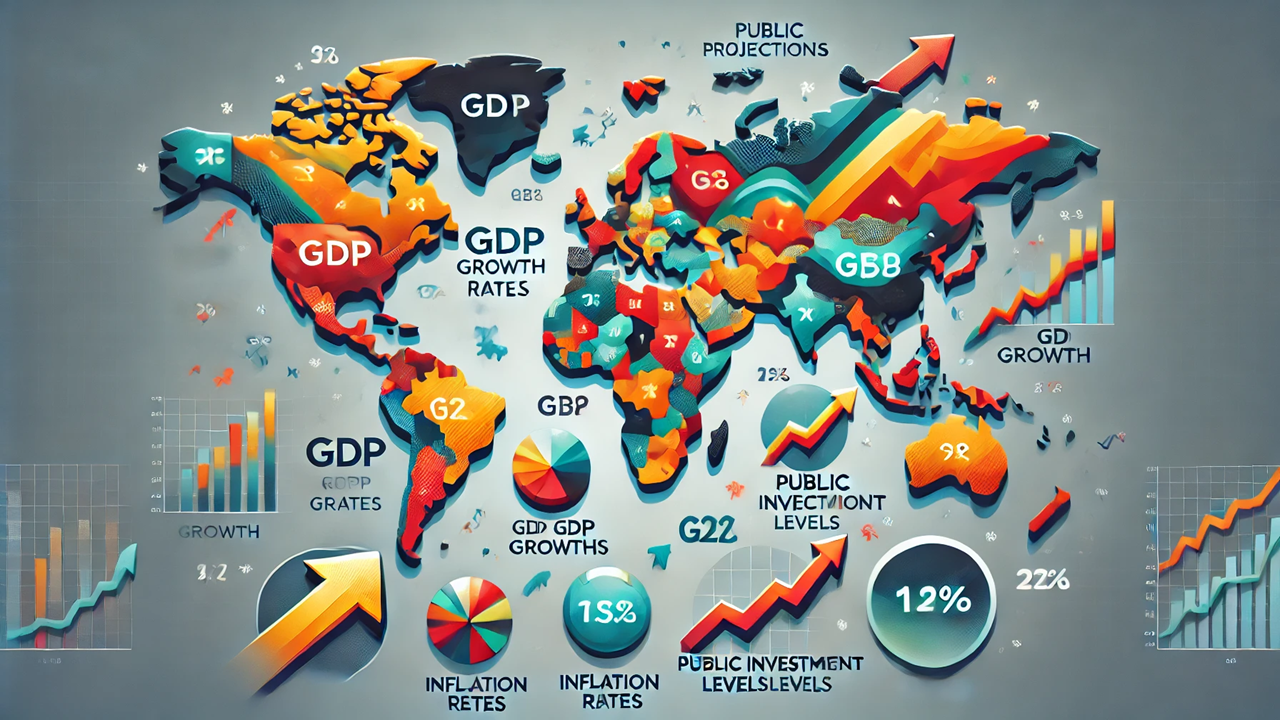Global Economy: Bracing for Stability Amidst Uncertainty
The World Bank's latest report "Global Economic Prospects: June 2024" shows that the global economy is finding some stability, but growth remains slow, emphasizing the need for strategic policies to stimulate further development. The report calls for enhanced public investment, fiscal reforms, and international cooperation to navigate the challenges ahead.

The World Bank's latest "Global Economic Prospects" report, released in June 2024, paints a cautiously optimistic picture of the global economy. Despite several years of economic turbulence, including the aftermath of the COVID-19 pandemic, geopolitical tensions, and persistent inflation, the world economy appears to be stabilizing. However, growth remains slower than pre-pandemic levels, and significant challenges lie ahead.
Modest Growth Amid High Stakes
Global growth is projected to hold steady at 2.6% in 2024, with a slight increase to 2.7% in 2025-26. This stabilization is largely attributed to the steady performance of the U.S. economy, which has shown resilience despite high interest rates and ongoing geopolitical issues. While this represents a modest improvement, it falls short of the average growth rates seen in the decade before the pandemic.
Inflation, a persistent concern, is expected to moderate gradually, averaging 3.5% this year. Central banks worldwide are likely to maintain cautious stances, keeping interest rates higher than pre-pandemic levels to manage inflationary pressures. This cautious approach is crucial as both advanced economies and emerging markets and developing economies (EMDEs) navigate these complex dynamics.
Regional Perspectives: A Mixed Bag
The report highlights varied economic outlooks across different regions. East Asia and the Pacific, for instance, are expected to see a slowdown primarily due to China's moderating growth. Europe and Central Asia face moderate growth prospects amid geopolitical tensions and economic sanctions. Latin America and the Caribbean continue to experience subdued growth, with a strong emphasis on structural reforms to boost productivity.
In contrast, the Middle East and North Africa are projected to witness an uptick in growth, supported by higher oil prices. South Asia stands out with a robust growth forecast, led by India's strong economic performance and significant domestic demand. Sub-Saharan Africa is expected to see some improvement, but growth remains below potential due to ongoing economic challenges.
Public Investment: A Catalyst for Growth
One of the critical insights from the report is the importance of public investment as a lever for economic growth, especially in EMDEs. Efficient public investment can stimulate private investment and enhance productivity, providing a significant boost to long-term economic prospects. However, the past decade has seen a notable slowdown in public investment in these economies, necessitating urgent policy reforms to reverse this trend.
For small states, that face unique fiscal challenges exacerbated by climate-related disasters, the report emphasizes the need for comprehensive fiscal reforms. These reforms should focus on improving revenue mobilization and spending efficiency, with a particular emphasis on health, education, and infrastructure.
Policy Recommendations for Sustainable Growth
The report outlines several policy recommendations to address the current economic landscape's challenges. At the global level, priorities include safeguarding trade, supporting green and digital transitions, delivering debt relief, and improving food security. These measures are vital for fostering a resilient and inclusive global economy.
Nationally, EMDEs must focus on maintaining price stability through cautious monetary policies. High debt levels and elevated debt-servicing costs necessitate strategies to sustainably boost investment while ensuring fiscal responsibility. Structural policies aimed at raising productivity, improving public investment efficiency, and closing gender gaps in the labor market are crucial for achieving long-term development goals.
Call for Coordinated Efforts
The World Bank's report underscores the importance of coordinated global and national policy efforts to navigate the current economic challenges. With the global economy showing signs of resilience, a concerted push for policies that advance shared prosperity is essential. The path ahead requires a balanced approach, blending cautious optimism with strategic policy interventions to foster sustainable growth.
- READ MORE ON:
- Global growth
- inflation
- emerging markets
- public investment
- fiscal policy
- FIRST PUBLISHED IN:
- Devdiscourse
ALSO READ
CII President Calls for Income Tax Relief Amid Rising Inflation
Central Banks' Cautious Dance: Navigating Inflation and Economic Growth
Global growth to moderate in 2025; US, China to decelerate to 1.5% and 4.5%: Fitch Ratings
Milk prices surge as economic crisis contributes to inflation in Karachi
RBI Governor Shaktikanta Das Speaks on Monetary Policy, Inflation, and Economic Growth










